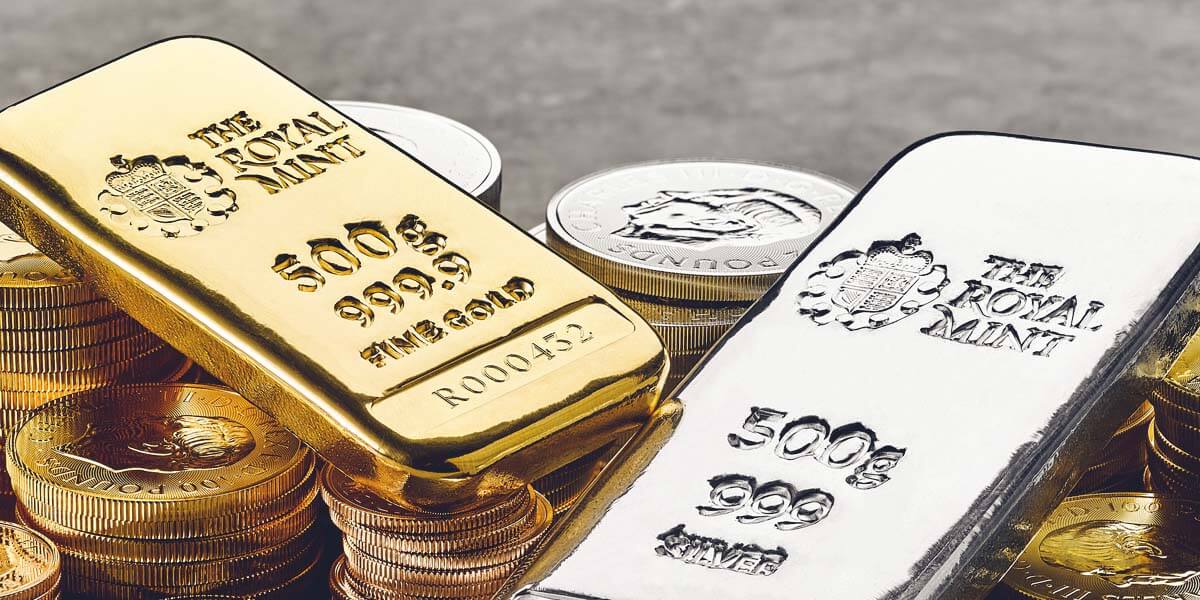Investing for Children: A Guide to Securing Your Child’s Financial Future
Last Updated September 2023
Category: Invest
- Types of Investments for Children
- Precious Metals as an Investment for Children
- Investing for Your Children’s Future
- Understanding Risk and Return
- The Time Factor in Investing for Children
- The Educational Aspect of Investing for Children
- Regular Reviews of Investment for Children
- Conclusion

Investing for children is an aspect of financial planning that often takes centre stage in many family discussions. As parents or guardians, we all want the best for our children. Part of providing the best is ensuring their financial future is secure, and this is where investing for children comes into play.
There are a variety of investments for children, each offering unique benefits. However, selecting the best investment for children depends on several factors, such as the child’s age, the amount of money available for investment, the risk level you’re comfortable with and your long-term financial goals.
Types of Investments for Children
Traditional savings accounts are a common choice when it comes to investments for children. These accounts are typically easy to set up and manage, making them an excellent first step towards teaching children about finance. However, the sometimes relatively low interest rates mean these accounts may not provide the level of return you hope for in the long run.
Investment accounts for children, such as Junior Individual Savings Accounts (ISAs), may offer a more attractive rate of return. These accounts can be invested in a variety of assets, such as stocks, shares and bonds, and they have the advantage of being tax efficient. However, they are often subject to restrictions, such as limits on how much can be invested each year and when the funds can be accessed.
One often overlooked option when considering the best investments for children is precious metals. Investing in tangible assets like gold, silver and platinum can offer a unique and educational way to invest for children.

Precious Metals as an Investment for Children
Precious metals offer an alternative investment avenue compared to more traditional options. Physical precious metals such as gold, silver and platinum coins and bars can be an exciting and tangible way for children to see their investments grow. Digital precious metals, such as DigiGold, also offer a contemporary and secure way to invest, appealing to the tech-savvy generation.
Investing in precious metals offers a two-fold benefit. Firstly, it diversifies the investment portfolio, and secondly, precious metals tend to hold their value well over time. They act as a potential hedge against inflation and economic downturns. This makes them an attractive consideration when investing for a child’s future.
When comparing to other investment accounts for children, precious metals provide a physical investment that can be held and appreciated, offering a more engaging and tangible experience. This can serve as an excellent educational tool, helping children understand the value of money and the principles of investment from an early age.

Investing for Your Children’s Future
As you contemplate the best investment for children, it’s crucial to keep in mind that investing isn’t just about financial returns. It’s also about teaching your child valuable lessons about money management, the importance of saving and the power of compound interest. These lessons will serve them well into adulthood.
Investing for your children also means investing in their future. Whether that’s providing them with a financial head-start in adulthood, saving for their education or just teaching them about the world of finance, your investment will have a significant impact.
Understanding Risk and Return
Investing for children is not without risks. It’s important to understand that higher potential returns often come with a higher level of risk. Therefore, part of deciding the best investment for children is assessing your comfort level with risk.
For instance, investment accounts for children in stocks and shares can fluctuate in value, and whilst they may offer higher returns, they also come with higher risk. On the other hand, precious metals, despite market fluctuations, have historically preserved their value over the long term, offering a safeguard against total loss, though price fluctuations, especially in the short term, are also common in precious metals.
The Time Factor in Investing for Children
One advantage when investing for children is time. With potentially decades until they’ll need the money, you can afford to take a longer-term view. This opens up more investment options, including those that might be too risky or volatile for a short-term investment.
It’s also worth understanding the concept of compound interest. Over time, interest is earned not only on the original amount invested but also on any interest already earned. This can result in exponential growth of the investment, making the early years of investing for children’s future incredibly powerful.
The Educational Aspect of Investing for Children
Investing for children provides a perfect opportunity to educate them about money and finance. Depending on their age, you can involve them in the process, explaining how different investments work and why you chose certain investments for them.
For instance, with precious metals, you can explain how supply and demand affect prices, and why these metals hold value. It’s an engaging way to discuss economic principles and the importance of diversification in investments.
Regular Reviews of Investment for Children
Once you’ve set up an investment for your children, it is crucial to review it regularly. Market conditions change, and what was once the best investment for your child and your situation or risk appetite may no longer hold that position.
During these reviews, consider the performance of the investment, any changes in your financial situation or goals, and whether the investment still aligns with the child’s future needs.
Conclusion
Remember, the best investments for a child’s future are the ones that align with your financial goals and risk tolerance. Whilst traditional savings accounts and investment accounts for kids are safe and familiar, don’t overlook alternative options such as precious metals. They offer unique benefits that could make them an investment choice worth exploring for your child.
Understanding the various investment options for children is the first step towards making informed decisions. However, before investing, consider seeking advice from a financial adviser. They can provide guidance tailored to your situation, helping ensure you’re making the best investment decisions for your child’s future.
In summary, investing for children is a critical aspect of financial planning that offers an array of options. Whether you choose to invest in a savings account, a Junior ISA or precious metals, the key is to start early, make informed decisions and keep an eye on the future. After all, the aim is not just to invest for children, but to secure a prosperous future they can look forward to.
The contents of this article, accurate at the time of publishing, are for general information purposes only, and do not constitute investment, pensions, legal, tax, or any other advice. Before making any investment or financial decision, you may wish to seek advice from your financial, pensions, legal, tax and/or accounting advisors.
